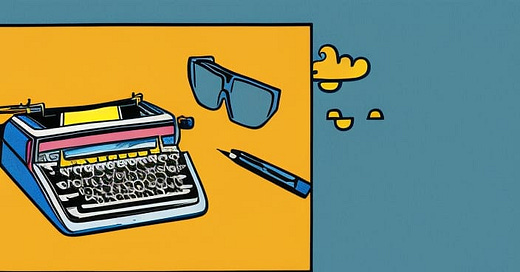Here’s the Weekly Writers Monday post. As the About page explains, expect short articles about writing and publishing. This is for paid subscribers only.
Blurbs
It’s worth being aware of the two different things that the word “blurb” might refer to.
For most authors, “blurb” refers to the short description of the story (without giving anything away – it isn’t a full plot summary!) that appears on the back of a paperback or hardback, or as the book’s description online. So it can be thought of as the back cover summary. It’s the tease that entices the reader into the book’s world and makes them want to know more. Ideally, it should be written in the same style as the book, so that it gives useful information. Is the book a snarky comedy? The blurb’s wording should reveal that. Is it an ominous and richly worded gothic mystery? Again, the blurb should capture that same voice. You can look at successful books in your genre to see what good blurbs look like.
Just to confuse matters, some authors use the word “blurb” to mean something else: the endorsements that may appear on the cover of a book, and which many readers find irritating or patronising. Example:
“Amazing and gripping, you will wet yourself with excitement” – Random Celebrity Who Probably Hasn’t Read The Book
Authors who use “blurb” to mean “back cover summary” will instead refer to the testimonials as “puff quotes” – perhaps because they are insubstantial as a puff of air, and possibly insincere.
Why is it that the term can mean back cover description to one author, but puff quotes to another? It’s because many dictionaries define “blurb” as a short promotional description of a creative work intended to tempt people into buying it. As such, both a summary of the book’s premise, or an excerpt from a review, can fulfil that purpose. Hence different authors using the same term for apparently different things.
Note that a blurb is not really the same a synopsis. A synopsis is a more full document, listing what happens and what the outcome is, aimed at tempting a publisher or agent into finding out more. Whereas you wouldn’t tell the reader an ending on the back of a book (they wouldn’t want to buy it as they’d know what happens!) publishers and agents are different: they want to know that there is a story that’s worth reading and that it has a satisfying conclusion.
Top Tip: An End As A Beginning
A concept related to the idea of a blurb (as a concise description that makes a book sound compelling) is that of the “elevator pitch” (even though the UK term for an elevator is a lift). The fantasy that you’re in an elevator with some media bigwig who has the resources to finance your dream project (often thought of as a film, but in this case perhaps they could publish your book and give you a juicy advance). They are a captive audience until the lift reaches their floor. You have that time – maybe twenty seconds – to describe the work in a way that is so exciting they can’t ignore it.
Keep reading with a 7-day free trial
Subscribe to Karl Drinkwater’s Words & Worlds to keep reading this post and get 7 days of free access to the full post archives.




